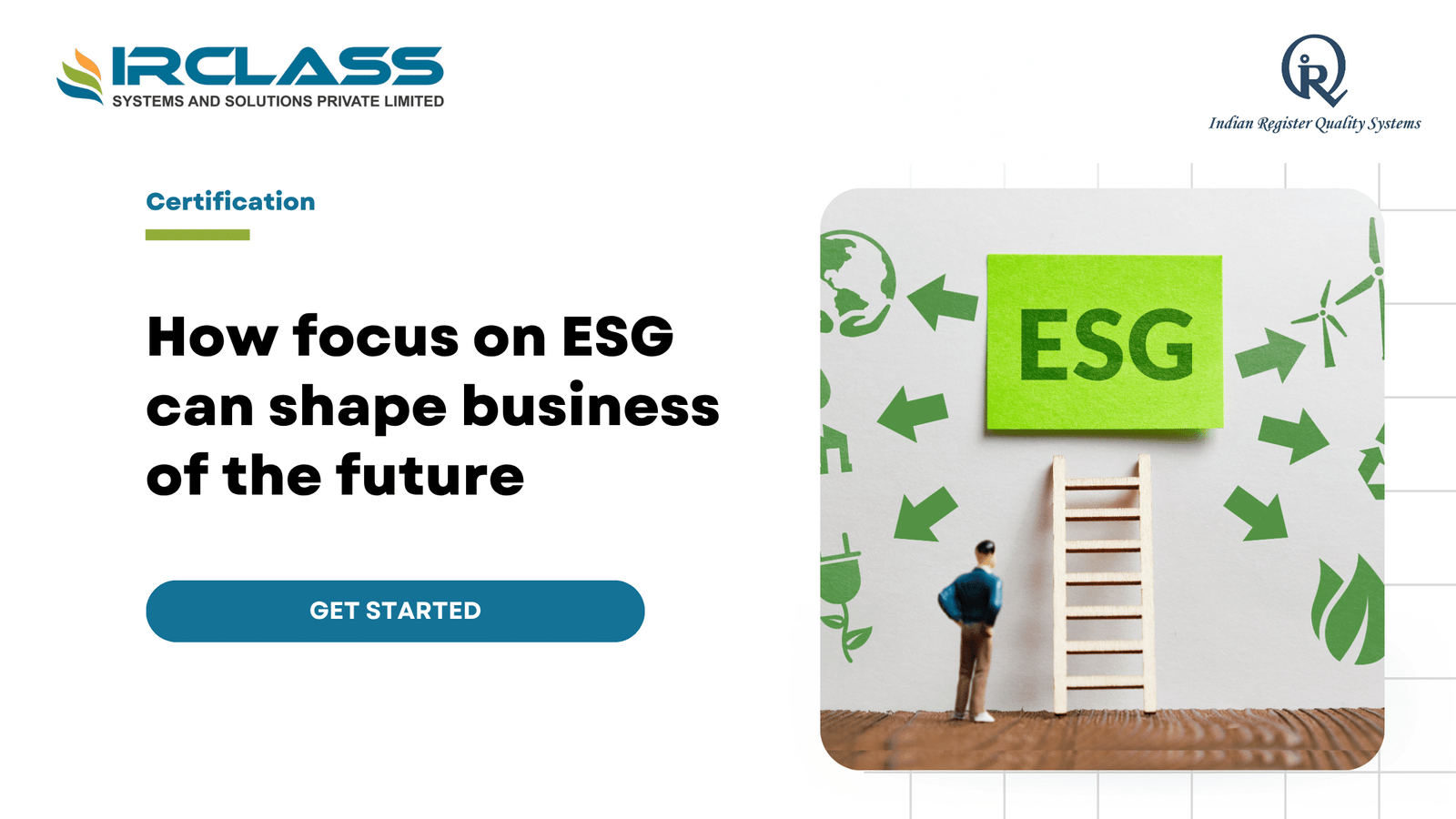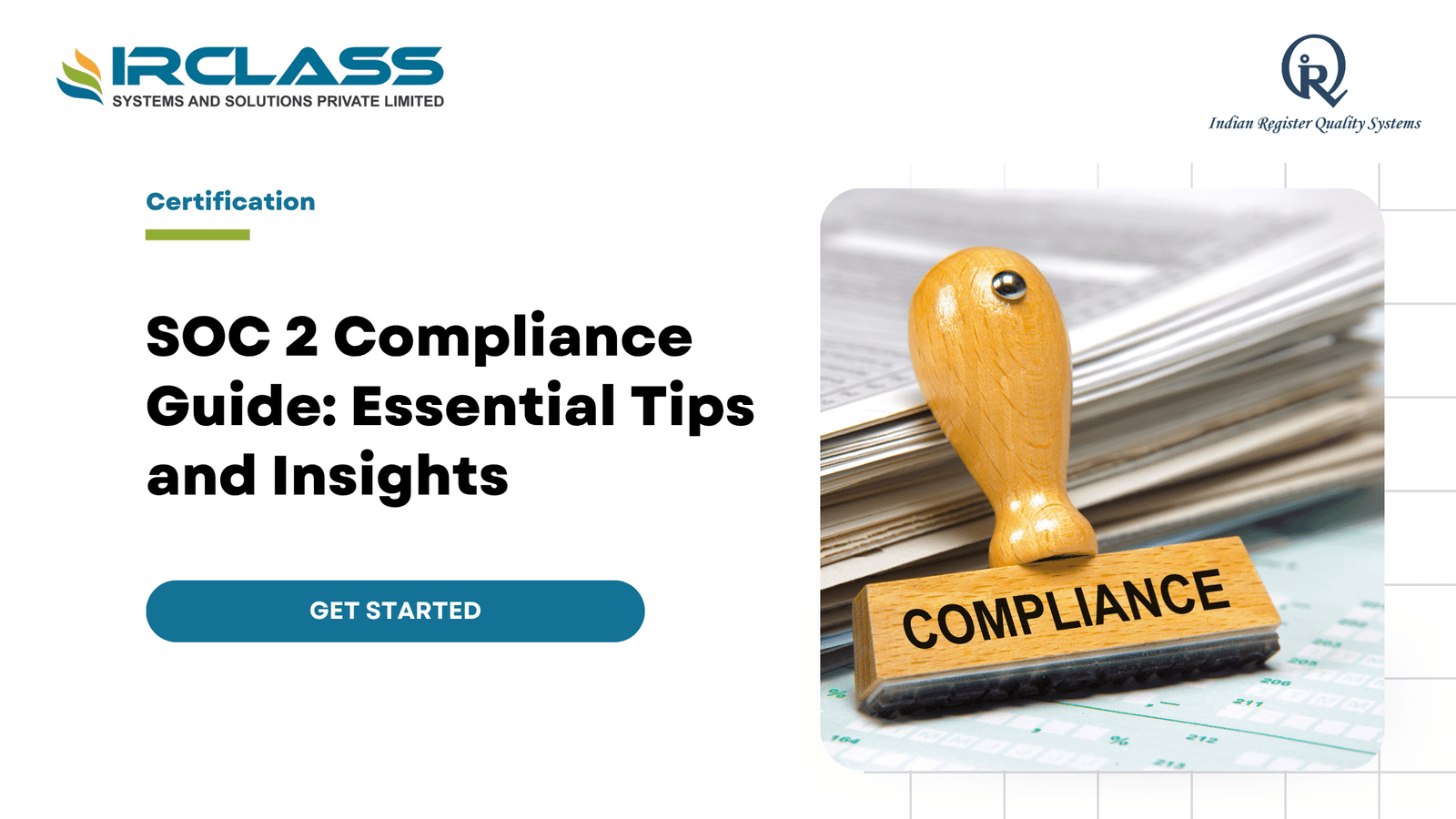Author: vishal
From Street Food To Fine Dining: How ISO-Certified Food Safety Courses Elevate Indian Cuisine
Explore How ISO-Certified Food Safety Training Uplifts Hygiene Practices, Enhancing India’s Culinary Landscape. Food safety is an essential social and health priority for India, or any other country, for that matter. The HACCP and ISO Standards are integral aspects and conditional for enhancing the overall quality of food safety and hygiene in India. The standards also help increase the business share of the country in the global food trade. The primary concern of the standardization scheme is to boost the operations of the food processing industry with the best hygiene and safety practices. It is vital to incorporate the best practices for food safety and quality assurance mechanisms. One can seek guidance from the best guidelines in the framework of ISO 9000, ISO 22000, HACCP, GMP, GHP, etc. All these standards facilitate the adherence to safety norms for food processors. One can meet the stringent quality and hygiene standards and protect the health of consumers. It also enhances product acceptance by buyers in the domestic and overseas food industry. The ever-increasing significance The various controversies related to the non-adherence to food safety standards need your attention. One needs to focus on the ideal hygiene practices for dairy and food products. The companies must meet the guidelines to combat safety issues in India. Apart from health, food safety is an integral quality for economic growth. These are modern solutions for the food processing industry, and offer a tremendous opportunity to expand the business. The food safety norms also improve employment potential, boost exports of agro-products, and offer optimal returns to farmers for their bulk production. The food safety standards need an efficient execution plan in order to be effectively enforced in the country. It is the responsibility of the business operators to prevent possible harm to customers. Neglecting the safety norms may lead to food-borne disease outbreaks as well! Thus, the significance of the ISO norms is critical. The WHO practices – Know about them rightly. One must find the best ways to prevent safety hazards and incidents. According to WHO or World Health Organization, one must acknowledge the five critical aspects related to food and hygiene safety – Safety across all stages of food production and distribution – All the establishments dealing with the managing, processing, manufacturing, packaging, and distributing of food via a business operator must adhere to the updated food safety and hygiene norms. The general hygienic and sanitary practices have become more integral since the pandemic. All food business operators must adhere to the food safety activities to avoid the hazards and hassles. About ISO 22000 – ISO 22000 defines the requirements for a food safety management system. All businesses must get certified to the safety norms. It defines everything an organization must implement in its action plan and demonstrates its ability to monitor food safety hazards. All businesses and organizations in the food industry regardless of their size or position in the food chain can implement the standards. ISO 22000 is an integral resource for businesses in the food industry. By meeting the ideal guidelines in ISO 22000, businesses can develop and adhere to a robust food safety management system or FSMS. The updated standard offers multiple benefits to businesses. Benefits you must know Food safety systems defined in the ISO 22000 framework provide a business with the best policies and procedures to review and analyze food safety risks and hygiene hazards. Read on and obtain an overview of the diverse benefits of ISO 22000 to help organizations – Benefits of ISO – An ISO-certified organization assures the optimal quality of the business and boosts the trust, growth, and scalability of the business. Concluding note In conclusion, the essential ISO standards are paramount for businesses in the food industry as these are connected with consumer health. Many things may go wrong within the food industry. Thus, food safety standards are critical from all angles. Image by rawpixel.com
ISO 27001 Training: Empowering Your Remote Workforce for Secure Digital Transformation
Equip your remote teams with ISO 27001 training, fortifying cyber security to enable seamless digital evolution Digital enhancement has pushed organizations to look for new alternatives and solutions. It is a need for organizations to manage and review digital records and information of the customers. Over time, the need has increased with the ever-growing chances of data breaches, data theft, and cybercrimes. Data security is integral for public safety and private sector organizations. Why? Because it is the responsibility of the organizations to safeguard the user and customer information and privacy. ISO 27001 delivers an efficient framework for all organizations to protect data systematically and cost-efficiently. ISO 27001 was published by the International Organisation for Standardization (ISO), with the help of the International Electrotechnical Commission (IEC). ISO 27001 certification program is a globally accredited certification for Information Security Management systems. The ISO framework helps organizations acknowledge their information security management system and defines the best approach. ISO 27001 framework includes – For the organizations – Workplace essentiality ISO 27001 focuses on risk mitigation connected with data security and privacy. The framework is designed to manage and implement data security practices. It delivers a framework for an efficient ISMS or information security management system. It necessitates effective ISMS. The ISO 27001 standard is not mandatory. However, the organization needs to implement it to ensure credibility and trustworthiness. However, it is not a legal necessity for any organization. The companies must define their data security controls based on customized needs. About the certification – What should you know? ISO/IEC 27001 is a global and reputable standard developed to offer an efficient framework to strengthen an organization’s ISMS. This global standard covers all critical policies and procedures related to data control and utility. The standard was published in 2005, and it was revised in 2013. The ISO 27001 standard fetches a compliance checklist for an organization. The company can implement the standards to ensure the ultimate safety management system for cyber data. A practical choice for organizations The ISO 27001 framework helps an organization exhibit and demonstrate the best security practices. It can improve relationships with the organization and clients, ensuring a competitive advantage. A company with the ISO 27001 certification, exhibits new business opportunities and assures the best solution. One can use the certification for – Avoid threats with the ISO framework. The foremost reason to certify the new-age safety norms of ISO 27001 is obvious. It is a safety concern! The framework helps you avoid security threats. it includes cyber criminals hacking into your organization and unverified data breaches caused by internal work teams. ISO 27001 provides a framework that defines the tools aptly and strengthens the organization with the help of the three pillars of cyber security – people, processes, and technology. One may incorporate the global standard to review the relevant cyber security policies for documentation and the essential technologies to safeguard the company. It also helps organizational operations and the staff to avoid mistakes. Avoid legal fines and penalties. ISO 27001 facilitates organizations to sidetrack the costly penalties linked with non-compliance with data security requirements. It can be the GDPR or General Data Protection Regulation. The Standard’s framework has similarities with GDPR, and organizations can utilize the guidelines to acquire and maintain compliance. However, the GDPR is not the exclusive framework that ISO 27001 can assist you with. It demonstrates the best practices and proactive approach to ensure information security. Protect the brand with a proactive step One can achieve the ISO 27001 compliance, and demonstrate a responsible image to stakeholders. It shows that you consider the norms of information security seriously. It will help the business owners win new business scopes. It also enhances the reputation of existing clients and customers. Organizations can only work with organizations that follow and demonstrate the norms of ISO 27001. Cyber attacks are ever-increasing across the world. In the long run, it can have a massive impact on the reputation of the company. An ISO 27001-certified ISMS or information security management system can efficiently protect your organization across vulnerable circumstances. Does your workforce require it? ISO 27001 is a necessity in a few industries where organizations need to collect and manage highly sensitive data. An ISO 27001 certification ensures trust and serves customers, stakeholders, governments, and regulatory bodies that the organization is secure and trustworthy. Many organizations deal with sensitive data. It can be for-profit or non-profit. It also offers the best solution for a small business, a large business, a state-owned business, or a private sector company! The ISO 27001 certification is an essential asset for all. The certification adds value to the business and facilitates your reputation to the next level. The ISO certification is a testament to the optimal compliance standards and security systems. It also facilitates the companies to avoid financial damages or penalties caused due to data breaches. Organizations can develop a professional environment where data is securely processed. Having the certification will always seek and favor organizations that are apt for ISO 27001. Make a futuristic move with ISO 27001 ISO 27001 certification offers a clarified framework for Information Security management or ISMS processes and key operational elements. The ideal practices include – keeping IT systems up to date, anti-virus protection, data storage and back-ups, IT Change Management, etc. The processes are integral to meeting the ISO 27001 standards, resulting in improved documentation and clear guidelines to follow for all professionals. Additionally, it keeps the organization secure and resilient from unprecedented cyber-attacks. One can ensure a futuristic move with optimal profitability with a wise choice. Cyber-attacks and data breaches will increase more in the future. It will always remain a dangling danger for companies. Get the best solution for the future with optimal planning. Get the best audit solution from IRQS, making it a hassle-free choice. Image by rawpixel.com
5 Common IATF Certification Myths Busted – What You Need To Know
Discover The Truth Behind Misconceptions About IATF Certification, Ensuring Accurate Insights For A Successful Automotive Journey. IATF 16949 is a well-known global technical specification. It is a quality management standard that specifically focuses on the automotive industry. IATF 16949 is an enhanced version of ISO 9001:2015. The ISO framework is comprehensive and contains supplemental specifics apt for the automotive industry. It is not a stand-alone QMS. The automotive quality experts have used their decades of experience working in the automotive industry and vouched for the effectiveness of the framework. The experienced automotive quality experts have integrated the critical information and essential steps for preparing the IATF 16949 certification. One can extensively dive into the IATF 16949 standard objectives and explore the benefits of certification. According to experts, the certification is advantageous for companies in the automotive industry. One can overcome the potential challenges and utilize valuable resources to ease the journey toward certification. Learn the vital aspects related to the certification and bust the myths for a clarified overview. The essentiality of QMS – Resolve the doubts and bust the myths. The quality management system, or QMS, is an integrated collection of essential policies, procedures, documentation, and records. The process and documentation define the necessary set of internal rules. It exhibits how your company formulates and delivers the product or service to the customers. The QMS of IATF 16949 is tailored to the needs of a company in the automotive industry. Hence it is beneficial for more than one aspect. Read on and obtain an overview of the common myths for enhanced knowledge. Myth one – It is not so significant! IATF 16949 offers a global technical specification and comprehensive quality management standard for the automotive industry. Therefore, it is extensively significant for companies in the industrial sector. The ISO framework delivers an industry-specific standard from across Europe and the U.S., defining everything you need for incorporating the best practice while formulating, manufacturing, installing, or maintaining automotive products. It is an effective resource for organizations of any size and can be used by any company. The international standard helps create a system ensuring optimal customer satisfaction and improvement. Myth two – It is a complicated QMS! The IATF 16949 structure is not at all complicated. In fact, it is split into 11 sections. The first four sections are introductory, helping you decode the essentials. The last seven contain the essentials for the quality management system. There are more sections, and each clause defines the needs. One can find an efficient QMS based on a Plan-Do-Check-Act cycle. With well-defined clauses, one can implement and maintain the QMS process diligently. Myth three – It is not beneficial for you! The leading automotive manufacturers and OEMs consider the QMS insights provided by the ISO framework. The promising benefits of an IATF 16949 certification help you obtain a comprehensive overview. The IATF 16949 certification exhibits that a company has an efficient quality management system with the requirements that help maintain and boost the continual improvement phase. IATF 16949 certification also boosts customer satisfaction by emphasizing the fault management and prevention system. All these facilitate the reduction rate of waste in the supply chain. Myth four – It does not have a role in business and profits. Companies can conveniently adapt the approach of IATF 16949 and ensure optimal profit. How? Because it enhances individual processes in an organization and focuses on overall development. Applying the framework boosts the interactions of the individual processes. By following the framework, one can access the areas for improvement and recognize the resources within the organization. Avoid making wrong decisions with the efficient QMS and ensure profitability. Facilitate the process of making decisions by relying on the specifications defined by IATF 16949 QMS. Thus, it has a prominent role in utilizing the target resources. Use the specifics to rectify the organizational issues for operation and improve the overall efficiency and effectiveness. Myth five – There are no differences between ISO 9001 and IATF 16949 There are differences between ISO 9001 and IATF 16949. ISO 9001 defines the elementary needs of a quality management system for all kinds of organizations. In contrast, the IATF 16949 deals with the requirements of QMS for organizations in the automotive industry. The ISO 9001 is a stand-alone document, but the IATF 16949 needs to be implemented as an extended version of ISO 9001:2015. The framework of IATF 16949 is apt for organizations operating in the field of production and maintenance of aftermarket parts. One can also focus on the customer-specific requirements with IATF 16949. Therefore, you can spot the prominent differences between the two ISO frameworks, and it would be wrong to consider these as similar solutions for organizations. Concluding note Now you know the conventional myths related to IATF 16949. Make the best choice with an informed approach. Everything depends on the techniques followed by the organization and the expert assistance. You can connect to IRQS for an enhanced and accurate audit service. Get end-to-end and efficient audits to resolve the complexities. Make a prudent choice by recognizing the critical facts related to IATF 16949 and ease the needs. Image by rawpixel.com

From Startups To Giants: How ISO 13485 Drives Success In The Indian Medical Industry
Uncover How ISO 13485 Fuels Growth For Medical Businesses Of All Sizes In India, Optimizing Quality And Compliance. All industries have some common in terms of standardization. Like other industries, the medical device manufacturing market has also gone through a lot during the pandemic period. The industry experienced a pandemic-induced slump during the years 2020 and 2021. The world economy is still recovering. As is the global medical accessories manufacturing market! Experts predict that the growth rate will increase and it will reach more than six hundred and fifty billion in the next five years from 2023. But the norms have become stricter. Industrial products must navigate through a strict funnel of FDA approval. One can consider the projected market growth of the devices and understand the criticality of a well-managed compliance system. It is time to focus on the approval strategy for medical device startups and companies to become part of the growth wagon and financial forecasts. The medical device makers must exhibit FDA compliance and obtain FDA approval in the US. The ISO 13485 certification is currently the best practice in the medical device manufacturing ecosystem. The globally accepted framework assists companies and service providers to meet the FDA regulatory norms and enhance company performance. A brief overview – An easy explanation of ISO 13485 The global quality management system or QMS standard for medical devices is well-defined in the framework of ISO 13485. It determines the best practices for medical devices and their quality management requirements for regulatory purposes. The certification program was published by the International Accreditation Forum (IAF). The certification facilitates the organizations to maintain the industrially approved status alongside the harmonized standard. ISO 13485 offers detailed documentation about the work environment. It also deals with risk management, design control, and extended requirements for regulatory norms. The revised norms of the ISO framework include the essentiality of a proactive and risk-focused approach in the QMS. One can witness an enhanced concentration on regulatory norms and the critical responsibilities of the top management team. It exhibits the increased control of the suppliers and their outsourced activities. The global framework facilitates the risk management necessities with a continual focus on the improvement of the product in its lifecycle. ISO 13485 is applicable to manufacturers of medical devices and industrial organizations assisting the medical device manufacturers. It defines the duty of the associated manufacturers, ensuring quality consistency to meet the regulatory requirements. Benefits of the certification The ISO framework is apt for organizations that deal with designing, producing, and servicing medical accessories and devices. The certification bodies use the standard for the following benefits – What should you know to implement the QMS? The process of implementing the norms and framework of the ISO standardization program and the QMS is systematic. However, you must note the critical aspects. Do you want to implement ISO 13485 QMS for your organization? You must acknowledge the following and make the best choice – Ensure a systematic improvement with ISO 13485 Abide by the ISO requirements and help your organization flourish in the medical device industry in the competition. Make a prudent choice by getting certified and exhibiting the objective standard of excellence. It will add to the competitive advantage in the marketplace. Get the best auditors from IRQS and conduct a professional audit for a hassle-free and accurate outcome.

Green Audit For Colleges, Universities, and Educational Institutions
Everyone knows that the term “Green” refers to nature. Therefore, the green audit is related to the assessment of the eco-friendliness of a system. The auditors review to recognize if the operations are damaging the environment. However, you must know the full form of GREEN. Global Readiness in Ensuring Ecological Neutrality” or green is the accurate definition. Green Audit is the systematic solution, essential to review, assess, report, and analyze the diverse components of environmental diversity. Green accounting helps monitor the various aspects of ecological diversity. Green Auditing is an umbrella term. It is also known as “Environmental Auditing”. The audit helps analyze the existing environmental practices inside and outside the academic institution, college campus, and universities. The practices can have an adverse impact on the eco-friendly ambiance. The audit helps determine the damages. Initially, the green audit started with the motive of inspecting the operations conducted in the organizations. Any company operating with a high risk to the health and environment were under the radar. With time, it has become substantial for academic institutes. Educational institutions have an immense impact on the world. It is both negative and positive. The activities at the campus may adversely affect nature. Thus, the audit is critical. About the concept One may not find a precise definition of Green Audit. The ICC defines the green or environment audit uniquely. As per the ICC, it is a management tool with a systematic approach. It is well-documented and necessitates periodic and objective evaluation. One must understand the impact of the practices on nature. The audit focuses on management and performance assessment to protect the environment and natural resources. The reports of the green audit must provide an overview of the existing practices and measures followed by the institution. About the NAAC accreditation process – Why should you know about it? National Assessment and Accreditation Council is the full form of NAAC. It was introduced by the University Grants Commission or UGC. NAAC, established in Bangalore, has a well-defined purpose. It is vital for monitoring and evaluating the performance of the colleges under Indian universities. The NAAC accreditation is an indispensable choice. Every college must apply and obtain the grade by NAAC. The grade given by NAAC is essential for all state universities. Without the NAAC grade, a university cannot operate optimally and uphold its reputation. The accreditation is critical to obtain UGC grants, RUSA grants, financial donations, etc. NAAC is also linked with green audits. Why? Because the reports of green audits determine the grade and influence the rating. Thus, all colleges and academic institutions must focus on maintaining the ideal practices for environmental protection without curbing their operations. The link between Green Audit and NAAC accreditation The NAAC accreditation reflects the performance and educational quality of the college and institution. One can gain an overview of the quality of education, learning infrastructure, research facilities, etc., with the help of the NAAC grade. A green audit is vital for a college. Having the best grades from the National Assessment and Accreditation is an achievement. The audit reports determine the effective and practical ways for colleges and universities to manage natural resources. The reports determine the wastage quotient at educational institutions. The accurate reports of the green audit ensure environmental sustainability at the college campus. Studying in a college with NAAC accreditation requires a lot of academic work, including writing essays. Students can use essay writing service to get help in writing high-quality essays on time. With green audit reports and NAAC grades, recognize the greenery quotient at the college campus and focus on other influential environmental components. Objectives of green audit – Covering the critical pointers Green audit for universities and organizations – Know the essentials Currently, it is mandatory for all Higher Educational Institutions to conduct the annual green audit and exhibit the report. In fact, it is part of the Corporate Social Responsibility of the Universities. It signifies their conscious contribution and awareness toward the betterment of nature and the environment. It also reduces the carbon footprint rate and promotes the enforcement of updated practices of environmental protection. The audit follows a comprehensive assessment of the diverse environmental components. It also determines the environmental impact of an educational institution with the NAAC grade. The purpose of the audit is to focus on an institution’s performance and assess environmental sustainability. It also considers other aspects like – energy conservation, waste management, etc. Understanding the process – The process follows a systematic approach and focuses on the detailed analysis of an institution’s – The audit also reviews the compliance with environmental norms and regulations. Get a chance to promote environmental awareness at the education campus and ensure environmental sustainability among students and employees. The audit gets conducted by a team of experts. They use diverse tools and techniques for data analysis. The audit report offers a comprehensive overview of the environmental performance. Additionally, it offers insightful recommendations for improvement. Concluding note The green audit is essential for educational institutions to improve and monitor their environmental performance. It is also social responsibility, and institutions must contribute to the overall well-being of the students and employees. It also enhances their reputation and competitiveness in the education industry without reducing productivity. Get the top auditors to facilitate the process. Connect to IRQS and find end-to-end assistance for audits. Image by AndreasAux from Pixabay

ISO 22301 Certification Benefits – Safeguarding Business Operations
Time is uncertain! Even in the world of business and global markets, unforeseen circumstances could create havoc and losses. The unforeseen incidents may be anything, such as market-related disasters or business disruptions. As a result of the sudden shock, most businesses slow down. Business owners can experience significant loss. It is essential to detect the disturbances and every critical aspect related to business. It must include everything from people, processes, and products to services. It is vital for businesses to prevent an abrupt end. One can try various techniques to overcome the unfortunate impacts. It is essential to efficiently tackle the challenges. All organizations must be resilient and ensure optimal security to promote business continuity and recovery plans even during the worst period. Business Continuity Management – What is it? Business continuity management or BCMS is an efficient management system. It is a well-defined system that helps you recognize potential threats to your organization. One needs a competent business continuity management plan to assess the risk level, type, and magnitude. One needs to stay prepared and respond effectively. Safeguarding the business reputation and crucial business activities are paramount responsibilities. The ISO 22301 certification offers an efficient framework to formulate, establish, implement, monitor, review, and maintain a business continuity management system. Continual improvement of the process is also vital. This way, an organization can protect against, prepare for, and recover during disruptive incidents. The practical need for ISO 22301 Having the capacity and potential to continue business operations is crucial, regardless of minor or major incidents. It is vital for all businesses irrespective of the size and type. A business continuity management system or BCMS facilitates and assists a company to plan for these unforeseen incidents. One can attain the best position in the business and enhance competitiveness. In the long run, it improves the business status and decreases the ‘downtime’ amount that a business may encounter as a result of unexpected incidents. The ISO 22301 certification is an internationally acknowledged framework. It covers the essential requirements for creating a robust business continuity management system. With ISO 22301, a company can reduce the risks associated with business disruptions and ensure better control over operations. ISO 22301 certification is ideal for all businesses looking to protect themselves against potential adverse incidents and unforeseen threats to daily operations. Business safeguarding with ISO framework ISO 22301 business continuity management system helps a business run optimally by assessing its capacity to combat potential risks. Simply put, it allows a business to be agile and tackle any adverse situation. One can manage any kind of disruption in daily operations with an efficient business continuity management system. A well-planned system for the business resolves the worries. How? Because you can follow the ideal steps during a major or minor incident. In the long run, it reduces the recovery time. Other benefits of an ISO 22301 include – In the long run, business continuity management systems can reduce insurance premiums, reducing the chances of trade disruption during a crisis. A detailed overview of ISO 22301 ISO 22301 is a globally-recognized standard for business continuity management systems. It provides a practical and highly-functional framework for organizations across industries. The framework helps mitigate potential business damages and facilitates the continuation of business operations. The focus of the certification is to recognize the areas of adaptability. Find efficient solutions to combat business disruptions or disasters. With a competent and efficient BCMS, an organization can run confidently. It is wise to retain the contingency plans. Why? Because it is necessary to prevent or prepare for such unforeseen and disruptive events. Whether it is a catastrophe or a minor incident – the solution strategy needs to be ready. The ISO 22301 BCMS brings a comprehensive framework. It is a proven structure for organizations to develop, update, monitor, and implement effective plans. The BCMS must align with the organizational operations and specific business requirements. ISO 22301 helps establish and manage an effective BCMS. With the framework, one can protect the organization during emergencies. Get a chance to develop optimal resilience and enhance risk management strategies. The coverage aspect – ISO 22301 BCMS offers an all-inclusive solution with a holistic framework, covering the following – Certification significance for business operations – Benefits you must know Concluding note The reasons why an organization must implement a business continuity management system and acquire the ISO 22301 certification are long! Recognize the risks and prevent the chances of insolvency during a disaster. Get the expert professionals at IRQS to conduct end-to-end audits for your organization. With ample knowledge and industry-specific skills, the team of specialists can resolve professional requirements with flawless reporting. Ensure a cost-effective and accurate service with IRQS. Connect to the professional team and get started with the process.

Importance of Environmental Audit for Educational Institutions
Environmental safety and health audit were developed during the 1970s. Environmental audit is critical for industries, and companies operating in environmentally intensive sectors involving oils and chemicals. But, what about educational institutions? The growing essentiality of offering a safe environment to everyone associated with the institution has made it an indispensable choice. Green audits or environmental auditing have increased rapidly with diverse approaches and techniques. One can find various reasons behind the growth – Environment audit – Important pointers you must note Defining the term – Know the technicalities The environmental audit process focuses on assessment, survey, and analysis. All three approaches are critical and used to describe the environmental risks associated with specific activities. It contains a holistic approach toward health, safety, and environmental matters. There is no universal definition of auditing, as different companies and organizations follow different practices. It is a management tool having a systematic and documented approach. The objective is to evaluate the infrastructure of an institution or organization. It determines the ideal practices for environmental protection, management, etc. The aim is to safeguard the environment via – (i) Enhancing management control over environmental practices. (ii) Reviewing compliance with policies and regulatory requirements of environmental protection. Objectives of environmental auditing The intent of environmental audits is to protect the environment and reduce potential risks to human health. Thus, it is critical for institutions dealing with young scholars. However, auditing is not the exclusive solution to achieve the environmental goal. The management tool plays a substantial role. The prime reasons behind an environmental audit are – Why is it critical for educational institutions and colleges? National Assessment and Accreditation Council, or NAAC, got introduced by the University Grants Commission, or UGC, in September 1994. It was established in Bangalore. NAAC evaluates the performance and operational quality at the universities and colleges in India. A commendable report from the environmental auditors ensures optimal environmental sustainability at the institution. It also covers other substantial environmental aspects that matter in an institution. Benefits you must note – Learn the essentiality of the audit Based on the audit reports, academic institutes can implement the best strategies for environmental management. It is vital to make the campus suitable for students, teachers, and everyone associated. It also assists the college determine the wastage volume. One can consider various recycling techniques and projects. It facilitates the process of developing a sustainable ecosystem at the institution. One can minimize wastage and develop a suitable system for environmental management. Closing advice If you hold a professional position at an institution, you must find a credible solution for audit services. It is essential to conduct annual or periodic environmental audits at the campus. Now you know the prime benefits of the audit. Make a prudent choice for the institute with IRQS. IRQS delivers top-grade audit service and helps you leverage the benefits of a systematic service with an experienced team.

Demystifying ISO 27001: The Gold Standard for Information Security
The world has evolved, and operational systems have gone digital. The significance of information and data has grown exponentially. These are valuable assets for any company. Companies need to focus on the protection and security of the valuable data. Ensure optimal protection for the operational system and implement an adept information security management system or ISMS. It should be in accordance with the globally recognized standard ISO/IEC 27001. Having a concise overview of the critical aspects of ISO 27001 will help business owners identify the best techniques for ISMS development. Learn the essentialities and follow the best ways to ease the hassles. ISO 27001 is a global standard for information security management systems, and it is suitable for all companies regardless of the size. The global framework can facilitate the operations of a company and help them achieve the regulatory compliance objectives related to optimal data privacy and information security. ISO 27001 is an incredible tool to ensure assurance to customers, stakeholders, and business partners. Decoding ISO 27001 – A detailed overview ISO 27001 is a golden standard for the management of information security in companies. Why? Because it helps define the requirements behind successful documentation and implementation of a competent information security management system in the company. Currently, information security plays a noteworthy role for companies. And, ISO 27001 acts as an essential guide for both large and small companies. Both large corporations and small-scale startups can use the ISO standard, especially organizations operating in the tech sector. ISMS and ISO 27001 – The critical link ISMS, or information security management system, formulates the rules, techniques, and steps to ensure and continuously enhance information security at the company. It facilitates the availability, confidentiality, and integrity of data and information for employees, clients, suppliers, and shareholders. The system is relevant to small and large companies operating with sensitive data because the stakes for managing the security of the information are high. The practical need Cyber thefts are gradually increasing and necessitate media coverage. Thus, the significance and essentiality of covering these aspects has become paramount for companies. The extent of a cyber attack has also increased. It may not always be a large-scale public issue. The thefts can happen even on a “private” scale. In both cases, the effects could be devastating. ISO 27001 provides organizations with the essential guidelines for planning, implementing, controlling, and facilitating the information security. With strict protocols and optimal compliance, the confidentiality of critical data could be safeguarded. Also, ISMS ensures an enhancement of the entire IT infrastructure. The essentiality of ISO 27001 – Know them rightly 1. ISO 27001 enhances information security With ISO 27001, companies can structure their information security management. Vulnerabilities are easily identifiable with the ISO framework. One can detect them before they transform into security gaps. Additionally, it minimizes the adverse impact of hacker attacks, data loss, and misuse. Even if there is an attack, the companies can track and repair the issues efficiently. One can manage the risks and ensure better damage control with ISO 27001. 2. ISO 27001 improves confidence in information security A certified ISMS enhances credibility and trust. A company should be responsible enough to manage the critical data and information of the customers and business partners. A company can gain the trust of its partners and customers and ensure better data sharing. ISO 27001 is a renowned certification system. An efficient ISMS ensures optimal utilization and security of data. 3. ISO 27001 facilitates data transparency in the company ISO 27001 enhances the corporate infrastructure for cyber assets. Because, it involves all the departments to protect sensitive data. The framework defines management responsibility and promotes employee training. Information security could be seamlessly incorporated into the company’s operational schedule and routine, involving all employees. It creates a positive effect on business operations and improves data transparency. Benefits of ISO 27001 – Why is it the gold standard? Technical security measures like firewalls, antivirus, etc., are part of the ISMS checklists. But, these have a limited capacity to protect the information system. ISO 27001 delivers end-to-end solutions, defining the critical specification for an efficient information security management system. The certification defines the guidelines for data security and management. An ISMS delivers a holistic approach to cover critical aspects of information security, providing multi-tier protection solutions for clients, procedures, and technology. Protecting the assets with ISO 27001 One can protect hardware, software, processes, and other assets in a company with ISO 27001. It also helps maintain the asset register. One can maintain and monitor information assets, including everything related to business, operations, and personal data. Simply put, it is effective for everything that needs protection. It can also be financial data, sales data, HR data, etc. Summing note A well-defined and efficient ISMS makes an organization strong and helps a company minimize security risks. ISO framework is essential for ISMS establishment and its successful implementation. It is also vital for the operation, monitoring, and continual improvement of the ISMS, making the ISO 27001 standard an indispensable choice. With IRQS, find end-to-end solutions for audit services and ease the process. The experts bring efficient services with flawless audit reports for the best client experience.

How Does FSSC 22000 V6 Compare To Other Food Safety Standards?
Food Safety System Certification 22000 is a notable scheme for those companies trying to maintain the maximum level of food safety management. It is critical to build and gain consumer trust and confidence. The version 6 of the globally-recognized FSSC scheme has been published by the authority. This current version exhibits multiple changes. It is designed to improve and enhance the scheme’s effectiveness. These changes are about to make an extensive impact on organizations in the food chain. Thus, one must stay up to about the FSSC 22000 V6 to understand how it would affect the business. Upgrade necessity – Know the need. Distinctive features of FSSC 22000 – What makes it unique? FSSC 22000 and ISO 22000 – Know the differences FSSC 22000 delivers a competent certification scheme with the vital features of ISO 22000 and an extensive list of standards for enterprises. The ISO 22000 certification framework contains lesser rigid requirements for the authority and enterprise, covering infrastructure and documentation maintenance. FSSC 22000 exhibits stricter requirements for infrastructure, covering the technical specifications of pre-industrial programs. The implementation of these requirements needs to be documented as part of the regulations of the framework. The requirements for the authority are vital for compliance, making the requirements of FSSC 22000 more rigid. It is necessary to develop and incorporate the critical procedures for ISO 22000 and FSSC 22000. There needs to be a thorough procedure for ensuring optimal management of documents, depending on the norms of production. The procedure of certification is similar for both schemes. However, the necessities of the FSSC 22000 scheme are more comprehensive and rigid, making it a labor-intensive process. Industries that can incorporate FSSC 22000 FSSC 22000 is suitable for various industries related to food and manufacturing. It includes – Prime benefits of FSSC 22000 – Positive impacts of the certification One can attain a systematic and competent strategy to identify and moderate food safety risks and hazards. The ISO-based certification model is apt for the food supply chain. FSSC 22000 is based on the ISO model. Thus, one can implement the framework with similar requirements. Read on and explore the benefits of FSSC 22000 and recognize the positive impacts of the certification – Industrial impacts with the new version – Experts must note Closing note – Audit impacts with the new version Due to changes in the accreditation document, the audit time for FSSC 22000 audits has been revised. The audit time has increased in many organizations. Many organizations need an integrated audit with enhanced management systems for food safety without reducing efficiency. Choose IRQS for an end-to-end solution related to FSSC audits and ease the professional requirements. Ensure an efficient audit session, meeting the revised norms of the FSSC 22000 audit. Image by Freepik

How To Choose The Right Food Safety Certification For Your Business?
Food Safety Certification authenticates the food business by implementing healthy practices ensuring optimal safety and quality. The environmental and distinct management systems are vital alongside the legal and standard compliance. If a business is linked with the food industry either directly or indirectly, one needs to get the food safety certification. From legal compliance to market essentials, there are ample reasons to make it an indispensable choice for food businesses. But how do you choose the right certification? Read on and know better. Success with food safety certifications – What makes it the apt choice? Before reviewing the various ways to pick the right safety certification for food safety, recognize the benefits and features – The ultimate reason to pick the best The purpose of industrial accreditation is uniform across the globe. Once a company gets certified, it is accepted everywhere! However, there are individual organizations certified with two or more food safety standards. A comprehensive framework introduces an all-inclusive administration and reduced redundancies in the organization. In the long run, it acts as a source for generating income via additional certification. There is more than one certification standard and scheme across the globe. Hence, the process of selecting the appropriate scheme is a critical task. Here are a few essential aspects that play a vital role in decision-making while browsing the certifications. What about the customer’s expectations? The customer demands incorporating a specific scheme may be a critical aspect of an organization. Most food organizations with numerous customers review the most-popular scheme. Understand that there is no scope for negotiation with the customer, and you can exhibit your rationale while making a firm choice. For instance, if a customer insists on BRC certification, you must negotiate a GFSI-approved certification scheme. Why? Because GFSI benchmarked standards include multiple schemes. It includes – BRCGS or BRC, FSSC 22000, IFS, SQF, and GLOBALGAP. Thus, you must recognize the customer expectation and pick the apt certification scheme. Review the size of the organization. GFSI benchmarked standards are practical. These are convenient and achievable by organizations of a specific size. Thus, the size of the company plays a significant part in making the apt decision. Small and micro food businesses must review the elementary options like the FSSC development program for global markets. The small and micro food businesses can also go for other independent schemes SALSA. However, the geographical location plays a distinctive role. The SALSA scheme is independent and it is an apt choice in the UK. These are appropriate starting points if the business is small. What about resources? Most organizations with the norms approved by GFSI benchmarks need ample resources. The standards approval necessitates full-time technical personnel. Or there must be a consultancy service team. Professional resources are vital and you cannot avoid it. The technical resources are essential for implementing and maintaining the norms and regulations of the popular food safety certifications. Features and Benefits of food safety certification Understanding the prime benefits of the certification will help you uncover numerous reasons to get certified. It is essential for – Improved Health and Safety – The prime factor The proper practices reduce the risk of contamination. It safeguards the product and food from pathogens like E. coli or Salmonella. One can identify the health risks and unsafe conditions, like – temperature abuse or poor hygiene. It is the prime intention of the certification. Help the workers around food-handling surfaces by following safe practices. Improved Customer Service – The goal Apart from recognizing the perks and purpose of the food safety program, clarify the goal. Why do you need it? With these certifications, one can implement new skills and ideal practices. It helps the customers receive superior service. Thus, you gain their trust and can expand the business in the long run. Summing the pros of getting the apt certification With the increasing cases of product recalls and unwanted food poisoning incidents across the world, consumers are losing faith in food products. Currently, information is easily available via social media. The consumers are aware and prudent, making the apt choice of food purchases. Manufacturers with certification can gain the trust for food safety among consumers, expanding overseas opportunities for the business. Apart from the vital features of the certification program, the factors that make a significant impact include – Final note – Get certified by professionals. Find trusted and qualified resources for the certifications. With an accredited provider of food quality and safety testing, the process of acquiring the certification and training for HACCP, ISO 22000, and FSSC 22000, becomes convenient. Connect to IRQS for a hassle-free audit service. It is efficient and effective for businesses looking for the ultimate solution.

GFSI Certification: Future of Food Safety
The Global Food Safety Initiative or GFSI began in 2000. It started as a collaboration among members of the Consumer Goods Forum. The development of GFSI was based on a uniform goal. The purpose was to improve and regulate the management of food safety risks. It is applicable across the supply chain. In the long run, it helps in reducing audit fatigue. Since its inception, GFSI has become an integral part of the implementation process of the HACCP-based food safety management system. The food safety certification programs or schemes assist in meeting a core set of requirements essential to produce safe food. Currently, there are fourteen recognized certification programs across the supply chain sectors. Real-life example – Where it all started In 2008, Walmart was the first branded retailer to mandate its suppliers achieve certification by the GFSI-recognized scheme. Since then, it has become a popular part of supplier agreements with retailers, food service providers, manufacturers, and more. With time, it has evolved and included the essentials for GFSI-recognized certification. Largely, this has become the need of the hour for the rapidly-growing number of recalls, consumer demands, and existing food regulations. Thus, a GFSI-recognized scheme assures the buyers that a supplier is responsible and committed to implementing the ideal food practices, continually monitored, verified, and improved over time. The success of GFSI GFSI’s success and global reach are a result of its extensive network of stakeholders. Simply put, GFSI’s vision is to offer “safe food for consumers everywhere”, making it the ultimate choice. It is governed by the GFSI Board, comprised of food safety and quality executives from retailers, manufacturers, and food service companies. The purpose of GFSI is to ensure continuous improvement in food safety management systems. It is a priority to deliver safe food to consumers and maintain the right balance between stakeholders’ vis communication and mandates. Reasons that make it the Future of food safety Getting certified in a GFSI-recognized food safety program helps suppliers, retailers, and, consumers. It gets accomplished via many programs GFSI including benchmarking of food safety certification programs, development of auditor competencies, etc. Prime benefits of GFSI certification valued by the suppliers and retailers include these – Understand the need – Reasons to get certified. Manage Risk A robust traceability system offers effective management of food safety hazards, creating an environment capable of producing safe products. It delivers a management system to continually manage, regulate, validate, and improve the system. The traceability reduces product recall reaction time, safeguarding the consumers and the brand. Expand Market Reach Statistics exhibit that approximately 1 out of 4 certified companies want their suppliers to achieve certification. If you have not been asked yet, you need to buckle up. You will be asked in the future and it is vital to meet the norms. The certification can help you stay competitive and qualified to operate with current customers and gain access to the larger network of global retailers. If a customer or market wants your business to become certified to a GFSI standard, one can pick any of the following framework structures – However, following GFSI-recognized standards are also applicable to producers of fresh fruit and vegetables: BRC Global Standard BRC Global Standards was founded in 1996 to reduce audit duplication by UK retailers. It is Global Standard for Food Safety scheme, and it is too applicable to primary producers of fresh fruits and vegetables, etc. Pointers that matter during the selection While selecting the apt GFSI-recognized certification program, you need to review multiple aspects. Give this a quick read to know more. Closing note Regardless of which GFSI food safety certification you choose, an annual audit is indispensable to maintain it aptly. Connect to IRQS for a hassle-free edit solution with the ideal practices.

BRCGS Certification: Improve Food Safety Culture
Food safety culture is a modern term for food safety. It is challenging to define it for organizations with their respective requirements of food safety culture. Dr. Joanne Taylor developed the modern term food safety culture in the Food Safety Culture Excellence Model. Dr. Taylor defined food safety culture as the “prevailing attitudes, values, and practices related to food safety that are taught, directly and indirectly, to new employees”. Global Food Safety Initiative (GFSI) and BRCGS have similar definitions. The GFSI outlines food safety culture as “shared values, beliefs and norms that affect mindset and behavior toward food safety in, across and throughout an organization.” On the other hand, BRCGS delivers a definition of the culture as – “The attitudes, values, and/or beliefs which are prevalent at the site, relating to the importance of product safety, and the confidence in the product safety systems, processes and procedures used by the site.” One can notice the similarities among these definitions. But food safety culture is more than these definitions. It is developed with multiple aspects that are all equally important. Food safety culture is a culture of a business or workplace focusing on all vital aspects of food safety. It demonstrates the ideal standards of safety for all members of staff. Essentiality of food safety Anyone related to the food-based business can recognize the essentiality of food safety and its role within the organization. It is convenient to display and remind the staff to uphold the ideal practices and procedures with the updated food safety culture. It is a straightforward task to monitor compliance with the due diligence checklists. BRCGS Food Safety Issue 9 has elaborated on the concept of food safety culture. It is an indispensable choice for senior management to exhibit a commitment level. It also promotes continuous improvement of food safety culture within an organization during a professional certification or internal audit. Companies with an enhanced opportunity for business can market their food safety culture and get it assessed, during the on-site food safety audit. Boosting the practices of a food safety culture in an organization or business can augment the scope of training on food safety practices for staff. In the long run, it generates benefits such as optimal compliance, zero legal issues and premium safety standards throughout the business, and an engaged workforce. Understanding from the organization’s perspective A well-defined food safety culture will assist the organization score high. One can always be prepared for an unplanned and unannounced audit with a well-defined food safety culture. The significance of food safety leads to fewer costly recalls. In the long run, it impacts the profit and saves the business from potentially brand-damaging food safety accidents. One can avoid loopholes and unprofessional behavior that may result in unsafe food. One can save resources to minimize the expense and manage better. From product recalls, food wastage, legal fees, and damaged reputation – find suitable solutions with the food safety culture. All these are incentives for an organization to implement an excellent food safety culture. Apart from these, food safety culture helps employees feel engaged with their work. Better awareness and knowledge act as bonus pointers for them to act in accordance with the organization’s values and principles. It helps in aligning the staff and makes them better workers and ambassadors for the business in the long run. Food safety culture enhances staff engagement and retention. A company with a mature food safety culture, exhibits a uniform policy about everything in the business, including GMP or Good Manufacturing Practices, leading to business success. About BRCGS – Get an overall idea. BRCGS stands for British Retail Consortium Global Standards. BRCGS was established in 1996 and it was in this year that BRC published the first standard, BRC Food Technical Standard. BRCGS is led by the LGC group, a global life sciences measurement and testing company. BRCGS is a leading global brand essential to strengthen a business. The objective of BRCGS is to promote food safety, for food and non-food industrial categories. The purpose of BRCGS is to implement ideas and proven practices, assure quality, and develop confidence in the supply chain. BRCGS was created by retailers and incorporated by businesses across industries. Simply put, the BRCGS norms ensure product safety and quality and simultaneously safeguard the business from facing any charges by the enforcement authorities. Features that improve the food safety The BRCGS is critical for – Businesses following standard and reliable manufacturing practices can assure their vendors and customers about the safety of their manufactured products. BRCGS certification exhibits that the products are safe, legal, and of premium quality. Here are some stats to prove the point – BRCGS is a benchmark practice in the food industry across the globe. A lot depends on its acceptance at the global level. BRCGS empowers organizations and brands in the food industry to expand across the globe meeting the ideal quality standards. BRCGS offers a structured framework helping you ensure and maintain product safety, integrity, legal compliance, and quality. It streamlines the management of operational activities, including food ingredient manufacturing, processing, packaging materials, etc. Summing the benefits Comply with the food safety norms. With the ever-evolving significance of food safety and the expansion of food and packaging industries at a global level, food safety is an indispensable topic. It is a concerning issue in the current times. Food safety culture is also vital for the ones venturing into the food supply chain, manufacturing, and packaging industry. Ensure customer safety and protect brand reputation with a prudent choice. Get the BRCGS certification with the apt steps.

What Does An Internal Auditor Do? A Comprehensive Guide For You
Internal auditors are critical for all organizations. The professionals help in protecting the organizations through their expert services. They analyze compliance and review the risks to bring the best strategy for the organization. Internal auditors review the company documents and data to recognize critical aspects like – Internal auditors operate across different industries. It can be healthcare, tech, education, or government. The expert auditors hold full-time professional positions and work as contractors for short-term audit projects. Professionals who can analyze perfectly and work with numbers are the perfect contenders for becoming internal auditors. They analyze and review to report the shortcomings and offer a lucid overview to the internal stakeholders. The auditors work independently. Internal auditors necessitate analytical and critical thinking skills with sharp attention to detail. The professionals are always in high demand. Read on and obtain critical notes about their profession and responsibilities. The duties and responsibilities Internal auditors check and analyze the critical records and financial documents in an organization. They examine and find out the underlying issues including – compliance concerns, risks, fraudulences, inconsistencies, and data inaccuracies. After checking the records within the audit’s scope, the auditors investigate for figuring out the shortcomings. Internal auditors implement their resources and knowledge of laws, industry regulations, and organizational policies to recognize the chances of noncompliance, fund misappropriation, and potential risks to the business. Besides these, the auditor takes care of the following responsibilities. Highlighting the prime duties of an internal auditor – The ultimate guide Prime qualities and service traits of an internal auditor Ways to Become a professional internal auditor An internal auditor must have a bachelor’s degree in disciplines like finance, accounting, etc. Ideally, having master’s degrees in business administration, accounting, auditing, business law, or taxation can be helpful for the career. But there are certification programs with specialization training for internal auditors that help them learn essential skills. Get the best auditors with IRQS. Now you know the offerings brought by the internal auditors. Get in touch with IRQS, the one-stop destination for connecting to the top auditors. Efficient audit solutions with accurate reports make IRQs suitable for internal audits. Find a proficient team of auditors with several years of experience and ample resources.

ISO 14001 Certification: A Guide to Environmental Management Systems
ISO 14001 Certification: A Guide to Environmental Management Systems ISO 14001 is an internationally-recognized certification program. It defines a global standard with specific requirements for a robust environmental management system or EMS. ISO 14001 delivers a framework that all organizations can follow. It only needs adherence and does not need many resources. In fact, it is part of the management system certification, and the ISO 14000 family of standards on environmental management defines a voluntary standard that all the organizations can certify to. Integrating ISO 140001 and other management standards can assist in accomplishing organizational goals. It is often paired with ISO 9001. The International Organization for Standardization, or ISO, defines the environmental management system in an organization as a vital part of the management system. It is essential to manage environmental aspects and meet the obligations for environmental awareness. Understanding ISO 14001 – Obtain an overview. ISO 14001 is a well-defined set of business standards. It is a comprehensive guide for developing a robust environmental management system. The standards are apt for any type of business. ISO 14001 offers the best assurance of the environmental impacts with a consistent improvement approach. The assurance is convenient to convey to the stakeholders, like the employees and investors, via an ISO audit and certification. The ISO 14001 standards were designed by 70 participating ISO members, with optimal expertise and insight for the development of the global standards. ISO is a national standard body with a global approach. ISO 14001 standards are for the environmental management requirements in the organization. While other management systems, like ISO 9001 are apt for quality management, ISO 45001 for occupational health safety, and many more. Simply put, it facilitates the integration steps of ISO 14001 with an existing ISO management system. What does it cover? ISO 14001 overview of the topics written below, related to an environmental management system or EMS – The revised versions – 14001:2004 versus 14001:2015 The 2015 version of ISO 14001 brought several changes and made it a better choice. The ISO 14001:2015 revision focuses on the process of incorporating a high-level structure. It is effective and uses the mandatory definitions of implementing common standards requirements and clauses. The prime influential aspects of the 2015 revision of the ISO 14001 version include – Benefits of ISO 14001 for an organization ISO 14001 is apt for organizations of various types and sizes. It includes private businesses, non-profit companies, government entities, etc. ISO 14001 facilitates the process of taking steps for all environmental issues in the organization. It is relevant for operations in the organization, including – The ISO 14001:2015 has more than one benefit for organizations as it helps with the following operational aspects – The need to implement ISO 14001 – EMS in the organization 1. Legal compliance Getting the ISO 14001 certification makes the organization appear up to date with legal regulations. Avoid the fines and legal hassles with the best EMS practices and ISO 14001 framework. 2. Enhanced reputation with consumers Undoubtedly, the trend is to go green! Hence, more consumers are ‘going green’! With the rapidly growing environmental concerns impact, one can witness a shift in their purchasing decisions. Getting ISO 14001 certification exhibits an active commitment to managing the environmental impact. 3. Competitive advantage With the ISO 14001 certification, step ahead of the competitors! It is profitable if the organization is bidding for the tender. With more and more businesses acquiring the ISO 14001 certification, it is critical to ensure the best decision for the organization. 4. Reduce waste The global standard reduces the amount of waste produced by organizations. Reduce the unnecessary running of machinery and use the resources optimally with the framework guidelines of ISO 14001. By using renewable energy sources in the organization and implementing energy-saving processes, a company becomes energy efficient. 5. Reduce costs Cost reduction is a critical aspect for all organizations. Naturally the rapid increment in efficiency results in reduced costs of business operations. The cost of waste management also reduces, with a direct and positive impact on the environment. 6. Reduced insurance costs Did you know that considering the ISO 14001 certification can reduce insurance premiums? The globally accepted certification proves the performance of the organization and robust due diligence, managing the possibilities of environmental threats. Ensure zero negligence with reduced insurance costs. In a nutshell – Summing the highlights comprehensively. ISO 14001, in the 2015 version, specifies the need for an environmental management system. It is indispensable for organizations and is critical to enhancing their environmental performance. ISO 14001:2015 is ideal for use by an organization looking for different ways to manage its environmental responsibilities systematically. In fact, it is a crucial part of the environmental pillar of sustainability. Meet the organizational goals and meet the objectives without neglecting the EMS norms. ISO 14001:2015 facilitates an organization to achieve the best outcomes. Find practical and efficient service with IRQS. With IRQS, connect to a team of the best ISO experts and auditors. Get the best service with an efficient approach and obtain accurate reports. Know the correct pieces of information for ISO 14001 and make a wise decision to benefit your organization and the environment.

How To Implement International Standards Of Information Security In Your Business?
A reliable information security program is a critical component for all businesses in the digital age. With evolving times, the rate of data breaches and security incidents are amplifying exponentially. An organization without a security program can face prominent threats to customers and data. Know the vital aspects related to an information security program. Find a step-by-step guide to implement it at your organization. ISO 27001 is the globally-accepted standard for information security management systems or ISMS. ISO 27001 framework defines the critical requirements for ISMS. The global standardization framework provides the ideal techniques for companies of any size and belonging to all sectors. Find optimal solutions for establishing, implementing, maintaining, and continually enhancing the ISMS or information security management system in the organization. ISO compliance – Complying with the standards of ISO 27001 exhibits that an organization or business has established a reliable information management system for risks related to data security. The data could be owned or handled by the company. The robust system must follow the best practices and principles, adhering to the ISO standards and norms. The ISMS or information security programs must tick the following criteria – Essentiality of information security – ISO 27001 Undoubtedly, the increasing rate of cybercrime is alarming! The constant emergence of new threats makes it challenging for organizations. It may appear impossible to tackle and manage the cyber risks. With ISO 27001, all organizations can become risk-aware. The framework helps a company become aware and proactive in the process of identifying and addressing its shortcomings. ISO 27001 promotes a comprehensive solution with a holistic approach to information security. Steps to implement ISMS – Information security management system Step 1 – Develop an Information Security Team The first step in the information security program is to make a critical decision about team development. The executive team necessitates senior-level associates for defining the mission and goals of the security program. They are also responsible for developing the security policies, risk management techniques, and more. Apart from the senior executives, there must be executives for daily security operations. Step 2 – Inventory and asset management The first task of the security team is to recognize the essential assets and their status. Note the details of the assets and their location. With lucid information, it gets easy to secure them properly. One can streamline the process with sensitive data, from hardware and devices. Obtain clear information on the databases, shared folders, and more. With a ready list of assets, assign the responsibilities and ensure systematic management. Step 3 – Risk evaluation and analysis While assessing the risks and analyzing the existing risk management plan, you consider the threats and vulnerabilities. Enlist the potential threats to the organization’s assets for a systematic overview. Rate the potential threats based on their impact. Review the vulnerabilities within the organization, and categorize and rank them on potential impact. Step 4 – Risk management Ranking and categorizing the risks is a vital stage for the ISMS implementation. After ranking the risks, decide if you want to reduce, shift, accept, or ignore any of the risks. Step 5 – Develop an incident management plan and disaster recovery strategy Without a robust Incident Management and Disaster Recovery Plan, an organization can never mitigate the risks. It is an essential part and every company must prepare for security incidents or natural disasters. It may be power outages, IT system crashes, cyber hacking, supply chain issues, and even a pandemic, like the recent one! A robust plan identifies the incidents and defines the best actions for data recovery and IT system management. Step 6 – Inventory and third-party management Enlist the vendors, suppliers, and third parties with access to the organization’s data or systems. Prioritize the list depending on the data sensitivity. Once identified, review the best security measures related to the high-risk third parties and mandate the essential controls. Ensure the best monitoring and optimal maintenance with an updated list of all third-party vendors. Step 7 – Apply Security Controls After risk identification, it is essential to define the measures. These risk controls help mitigate or eliminate the possibilities of risks. It could be technical as well, including – encryption, intrusion detection software applications, antivirus applications, firewalls, etc. It can be non-technical including risk management policies, procedures, etc. Step 8 – Security awareness and training One of the most essential parts is to conduct frequent security awareness training. Why? Because it helps share critical information about the security plan. It also revises and reminds the responsibilities of every employee. The evolved security measures and policies become effective only when the employees working with the data are aware of the new norms for risk mitigation and management. Any time the security program receives an update, inform the employees with awareness training to ensure the best operational solution in the long run. Step 9 – Audit the system Ensure the effectiveness of your information security program with the assistance of a third-party auditor. They offer an unbiased report with their end-to-end assessment solution. Recognize the security gaps and confirm compliance. Obtain accurate reports on vulnerability assessments, developing a robust ISMS. Stay informed to make the best choice. Now you know the critical aspects that matter significantly for ISMS development and implementation. Find the most efficient team of auditors with IRQS for ensuring end-to-end solutions for ISO internal audit. Make the best selection by staying informed about the essentials.
Search
Useful Links
Recent Posts

What Is Carbon Footprint Verification & Why It’s Critical for Your ESG Goals

Why ESG Reporting Is the Future of Business Strategy



